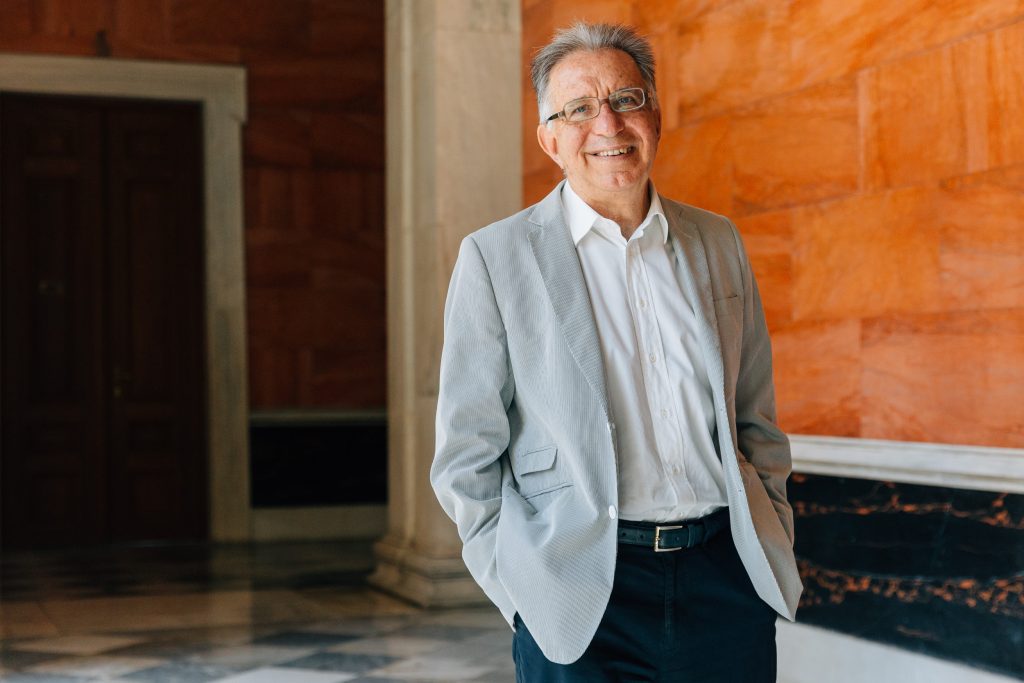European Academy of Sciences Prize – Blaise Pascal Medal awarded to Professor Athanassios Fokas, who was also this year elected in Academia Europaea
The eminent mathematician, Director of the Mathematical Legacy Programme (supported by the Gianna Angelopoulos Programme for Science Technology and Innovation), and Fellow of Clare Hall, Professor Athanassios Fokas, is awarded the Blaise Pascal Medal in Mathematics in recognition of his exceptional contributions.
According to the citation of the Academy: Profesoor Fokas “has solved a number of important problems and has also contributed to several important translational fields including engineering and medicine. Dr Fokas has made seminal contributions to the solution of a large class of nonlinear partial differential equations, occurring in a wide range of interdisciplinary applications, from two-phase flow in porous media to nonlinear optics. The impact of Dr Fokas’ work in various fields has been phenomenal. He introduced the so-called inverse spectral method which has led to the solution of several physically important equations arising in water waves, in plasma physics and in nonlinear optics. Regarding the transformative Fokas method, the citation in his Aristeion prize noted that this is the most important development in the solution of partial differential equations since Fourier, Laplace and Cauchy”.

Every year, the European Academy of Sciences awards the Blaise Pascal medal to outstanding scientists. On average, it awards a total of five prizes in certain disciplines, which include Mathematics, Physics, Chemistry, Computer Science, Biomedical Sciences, Engineering, Environmental Sciences, Materials Sciences, and the Humanities.
In May it was announced that Professor Fokas is one of the three UK mathematicians that were elected in 2023 in the Mathematics section of Academia Europaea.
Professor Fokas is now a member of all three European Academies, namely, Academia Europaea, the European Academy of Sciences, and the European Academy of Sciences and Arts.
We extend our wholehearted congratulations to Professor Fokas on this extra-ordinary achievement.